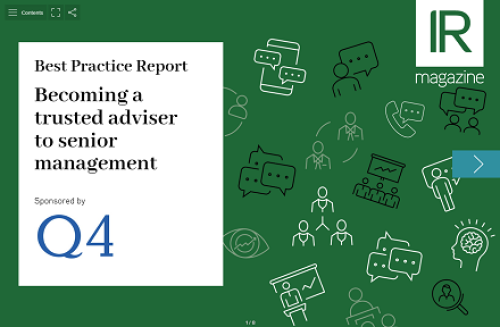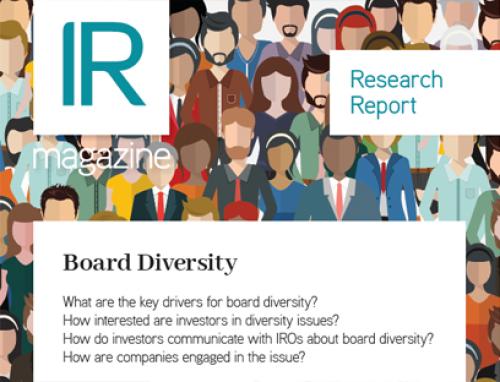Carol Murray-Negron spent much of her corporate career at Avon Products. She served in a range of senior roles there, including as vice president of investor relations (1995-2001), vice president of marketing for the Asia Pacific region and regional vice president of US sales.
In 2002, Murray-Negron opted to change careers. She established her own firm, Equanimity, which has enabled her to offer leadership and executive career coaching, as well as strategic communications coaching. She currently serves on the NIRI national board and is an adjunct professor of investor relations at New York University’s School of Professional Studies. In 2003 she won IR Magazine’s lifetime achievement award.
What has been the biggest change in the IR profession during your career?
Certainly one of the trends over the last 20 years – and more so in the last five years – is the expansion of IROs’ responsibilities. They’ve gone from being a messenger and financial expert to filling a more strategic role. That requires expertise in many overlapping areas – such as governance, shareholder activism and market dynamics – that weren’t a required for IR professionals 20 years ago.
What’s the biggest lesson that you’ve learned from your career?
The importance of credibility and having a reputation for telling the truth. That’s very easy to lose and very hard to get back. The same is true for individuals and for companies. If a company loses the faith of its investors, it will take years to get it back. Always guard your personal reputation and credibility and if you think that’s being compromised, then make the hard decision and separate yourself from the situation.
What career advice do you have for IR professionals today?
Be flexible, be open to new opportunities and interested in learning new skills. Longevity in jobs has been severely reduced in recent years for many reasons and it will be common for this generation to work for a dozen or more companies throughout their career. You need to be constantly thinking about career development, networking, keeping your resume up-to-date and building your brand. You have to be the master of your own future and plan your trajectory.
Job applications are all done electronically now, and I’ve worked with people who have sent out dozens of resumes and not heard anything back because a computer is sorting through the applications and looking for keywords. This represents a deeply dehumanized approach to the job market. The only way to break through that is to have deep relationships, so that you can get your resume to the right person at the right time.
The number of US public companies has halved since 1997 and you also have sell-side analysts looking to move into IR positions, so it’s become extremely competitive to get an IR job. That’s why it’s so important to focus on building and maintaining your personal brand.
What do you think the biggest change the IR industry will face in the future and why?
I think controlling the message will get harder. In the age of data overload – where more information is available in more places than at any other time in history – it’s hard to tell a story that stays in front of investors without the financial media and social media spinning it in a certain way.
I think this will become more complicated as we continue to find new ways of looking at the corporate value proposition. We are seeing the increasing importance of the intangibles – ESG and intellectual property, for example. The models of companies will look quite different in a few years. This change is what we’ve seen with the incredible value of young technology companies that mushroomed overnight and didn’t fit the traditional Wall Street model. Emphasizing intangibles is a major change and not one that I think will be driven by financial analysts, but it’s one that will make understanding a company’s value proposition more complicated.










